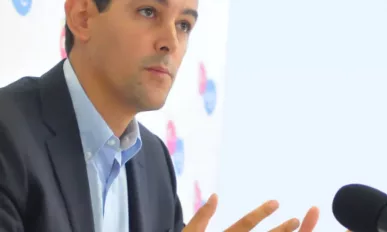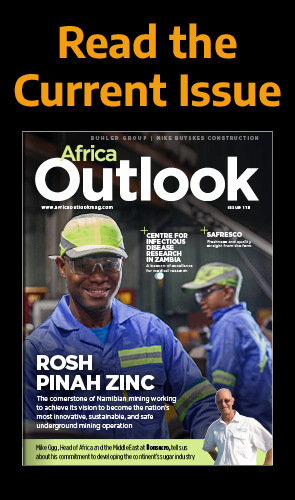SAP Africa Report: Predictive Analytics Prepare Companies for the Era of Massive Data
Derek Kudsee of SAP Africa assesses how businesses can unlock the value of the networked economy.
Alcatel-Lucent and Ooredoo Algeria in Africa’s First 400G Ultra-Broadband Network
Africa’s first Alcatel-Lucent 400G backbone network is designed to provide maximum capacity and transmission quality necessary to meet growing demand for high-speed mobile bandwidth.
Tigo Pesa Returns TZS 3 Billion to Customers
Tigo announced today the first of its regular quarterly payments worth 3bn/- (US $ 1.8 million) to Tigo Pesa users.
Tigo Chad : Building a Digital Life for Chadians
The last two years marked several milestones for Tigo Chad; with the launch of Tigo Cash, 4G LT E services and the renewal of their license in the country for a further ten years, all of which promises to increase their customer reach in the future.
Airtel Madagascar : My Country, My Network
Africa Outlook spoke to Maixent Bekangba, Managing Director of Airtel Madagascar about working to bring a better service to the Country.
Airtel Sierra Leone : Life Enriching
Airtel Sierra Leone are investing millions on the modernisation of their network towers and a new data centre in the Country.
Viettel Honoured as Fastest Growing Company of 2014
Viettel in Mozambique honoured as fastest growing company of the year (2014)
Tigo Tanzania : Talking Tanzania
Over the last 18 months, Tigo Tanzania has expanded their network coverage to bring a full range of digital services to a wider audience.
Oracle EMEA : Oracle In Europe
Oracle has become one of the largest technology companies in the world on the strength of its extensive portfolio of software and hardware products.
Airtel Seychelles : Bringing Innovation to Seychelles First
Boasting a dedication to technological innovation, Airtel Seychelles bring the latest technologies and data services straight to the user.

































